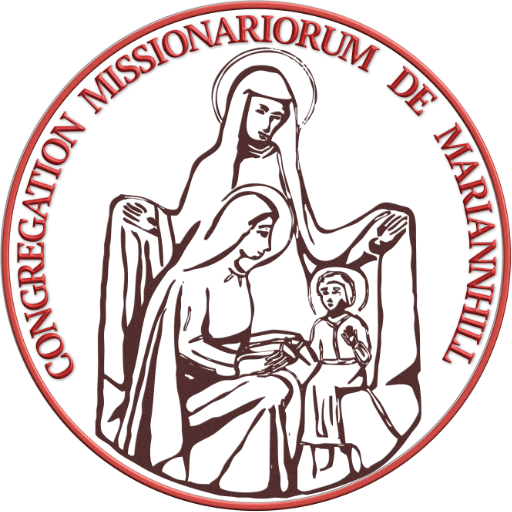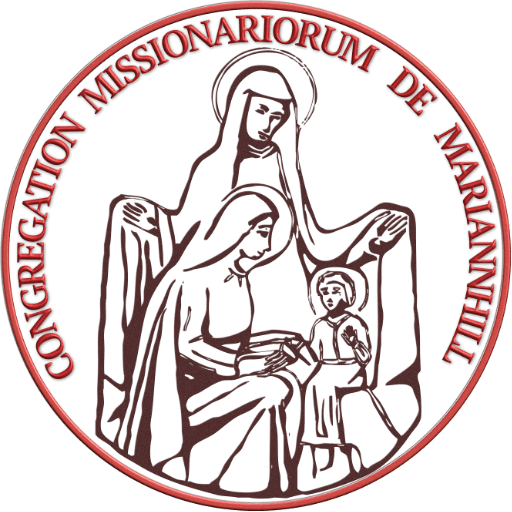The story of the Congregation of the Missionaries of Mariannhill began in France, in 1879. The Trappist Abbots and Priors from all over the world had assembled for their general chapter. Among them was Prior Francis Pfanner, founder of the Monastery of Mariastern in Bosnia. His priory was scheduled to be elevated to an abbey. With that he almost certainly would have become its first abbot, for in ten years he had guided it from its beginning to a thriving community of nearly 80 monks and that in a land with an unfriendly Mohammedan government.

Then something unexpected happened. A bishop from South Africa, Richards by name, came to the chapter. He asked for Trappists to come to the Cape Province. All of the Abbots remained silent after he had made his proposal.
They were not missionaries. How could he expect them, who were used to a settled life, to begin in an entirely new land so far away and so undeveloped? Perhaps he should forget the whole thing…suddenly Prior Francis stood up to reply, “If no one will take the job, I will!”
Arrangements made with the bishop, he quickly returned to Mariastern to ask for volunteers and settle affairs there. Soon Francis and 31 companions from Mariastern were on their way to Africa by boat.
Their attempt to live on the land which the bishop gave them failed after two years through lack of water and harshness of climate.
The name alone arouses curiosity. Its founder, Abbot Francis Pfanner fascinates. Its history offers something amazing. Thomas Merton has spoken about the missionary work of Mariannhill in these terms.

Here was the astonishing spectacle of a Trappist mission in which the contemplative monks had achieved in few short years, a success more spectacular than many active order had dared dream of. The most astounding thing about this new mission was that it was operating on purely Benedictine lines. It was an apostolate of prayer and labour (ORA ET LABORA), of liturgy and the plough. What was taking place in the outposts established by Dom Francis Pfanner was exactly the same process that had marked the Christianization of Germany and all northern Europe by the Benedictine monks hundreds of year before.
Furthermore, after having visited the Mariannhill mission Mahatma Gandhi sang its praises.
In time this missionary work of Abbot Francis and of his monastery, dedicated to Mary and Saint Ann, brought about “an Order within an Order”. Contemplation and intense missionary activity meant a marriage that the Order of the Reformed Cistercians could not bless.
So in 1909 Pope Pius X decided to separate Mariannhill from this Order. The Congregation of the Missionaries of Mariannhill was thus born. A providential birth that would make the expansion of this remarkable work possible! The new family will draw its fundamental inspiration from Abbot Francis. this great missionary monk, and from his monastic community, missionary like him. Everything had started in 1882 with the initiative of this courageous apostle: when he founded his monastery that year, he had already received from Rome the mandate to go and “spread the light that enlightens the nations.”
1999 was the year of the 90th anniversary of the death of Abbot Francis Pfanner (May 24). It was at the same time the 90th anniversary of the separation of Mariannhill from the Order of the Reformed Cistercians (February 2), in other words of the birth of the Missionaries of Mariannhill. Can we blame the spiritual sons of Mariannhill for being proud of their origins? For wanting to talk about their family? Obviously, it is out of the question for them to claim as their own the merits of the generous years of the beginning. Nevertheless, “noblesse oblige”: they ought to go and draw from these roots of theirs the sap of a new spring shoot. They ought to permeate the present with the dynamism of their past. They cannot keep for themselves alone the wealth of their heritage, while always remaining open to the Spirit who “blows where he wills.”
Our motto is Ora et Labora (pray and work), which means that work is considered as a form of worship and as a spiritual mastering of work. In other words, work is shaped by the spiritual values coming from the contemplative attitude. Our spiritual ancestors gave us the example.


hbcbaljv;ada ekvaeova jvae vaevaefvoaihfvo viehfv evjvoevo Play Video
1. Mariannhill Province Two Postulants 2. The Region of Mthatha One Postulant 3. Zimbabwe Province One Postulant 4. The Region of Zambia Four Postulants 5.